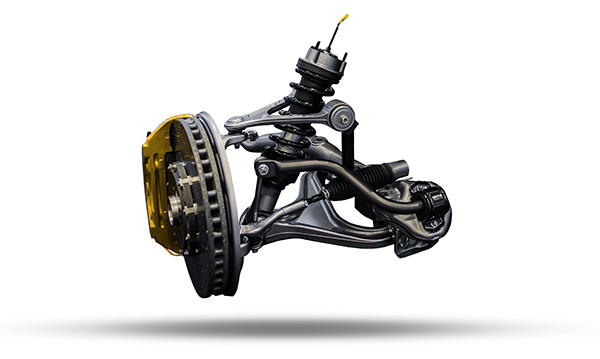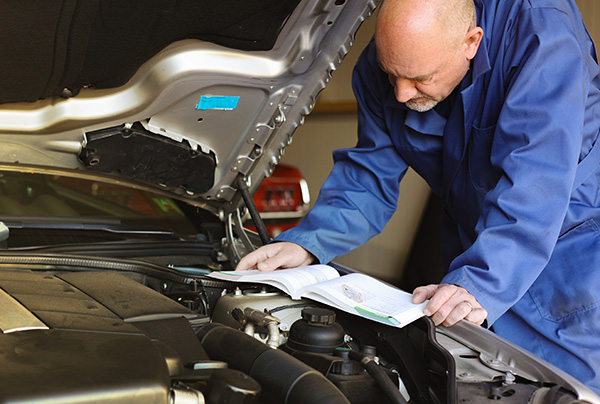Posted on 12/20/2024

The start of a new year is the perfect time to turn over a new leaf—not just for yourself but for your car, too. While personal resolutions like eating healthier or hitting the gym are great, why not extend that commitment to your vehicle? A little extra attention to car maintenance can save you money, boost safety, and even extend the life of your ride. Let’s talk about eight resolutions that will keep your vehicle in top shape all year long. 1. Stick to a Regular Maintenance Schedule How often do you find yourself skipping scheduled maintenance because you’re “too busy”? This year, make a vow to follow your car’s service intervals. Whether it’s oil changes, tire rotations, or fluid checks, staying consistent prevents small issues from becoming big headaches. Check your owner’s manual or consult with a trusted se ... read more
Posted on 11/29/2024

Suspension issues might seem minor compared to engine or brake concerns, but they have a significant impact on vehicle safety. Beyond making for a bumpy ride, a faulty suspension can affect handling, tire wear, and even braking ability. If your suspension system isn’t performing at its best, you’re not only risking comfort—you’re risking safety on the road. Let’s examine how suspension problems can jeopardize your vehicle’s performance and safety and how regular maintenance can make all the difference. What is the Role of the Suspension System Your car’s suspension system includes various parts like shocks, struts, springs, and control arms, all working together to absorb road impacts and maintain a stable connection with the road surface. In other words, the suspension system ensures that your tires remain grounded, pr ... read more
Posted on 10/31/2024

Subaru has built a strong reputation for its reliable and innovative engineering, and at the heart of this success is its Symmetrical All-Wheel Drive (AWD) system. You may have heard about how this system enhances Subaru vehicles’ performance and stability, but how does it actually work? What makes it different from other AWD systems out there? What is Subaru’s Symmetrical All-Wheel Drive Subaru’s Symmetrical AWD is an all-wheel-drive system designed to deliver continuous power to all four wheels of the vehicle at the same time. Unlike other AWD systems that activate the rear wheels only when the front ones slip, Subaru's system is always active. This provides enhanced traction, stability, and control regardless of road conditions. The system is called “symmetrical” because the drivetrain is perfectly balanced from front to rear, creating a linear power flow that maximizes efficiency and ensures optimal performance. How Symm ... read more
Posted on 9/27/2024

Car maintenance isn’t something most of us enjoy thinking about, but it's one of those responsibilities you simply can’t ignore if you want your vehicle to stay in good shape. Whether you're driving a brand-new car or one that's been on the road for years, sticking to a regular service schedule is essential. One of the most important maintenance routines for any vehicle owner to follow is the 30k/60k/90k service plan. But what does this actually mean, and why is it so important? If you’ve ever wondered why your car manual suggests bringing your car in at these specific mileages, let’s explore what happens during a 30k/60k/90k service and how it helps ensure your vehicle stays reliable for the long haul. Understanding the 30k/60k/90k Service Milestones When you buy a car, the manufacturer sets certain service intervals designed to keep the vehicle running efficiently and safely. The 30k/60k/90k service plan follows these guidelines ... read more
Posted on 8/30/2024

Have you ever noticed that your car's performance seems to falter when driving through The Rocky Mountains? It's not just your imagination. Engines genuinely struggle at higher altitudes. Understanding why this happens can help you better prepare for trips and ensure your vehicle remains in optimal condition no matter where you drive. We'll explore the reasons behind this phenomenon and what you can do to mitigate its effects. The Science Behind Engine Power Loss The primary reason engines lose power at high altitudes boils down to one fundamental concept: air density. Air is composed of oxygen and other gasses, which are essential for combustion in internal combustion engines. As altitude increases, air pressure decreases, which means there's less oxygen available for the engine to mix with fuel. This reduction in oxygen leads to incomplete combustion, resulting in decreased power output. Oxygen and Combustion Engines rely on a pre ... read more